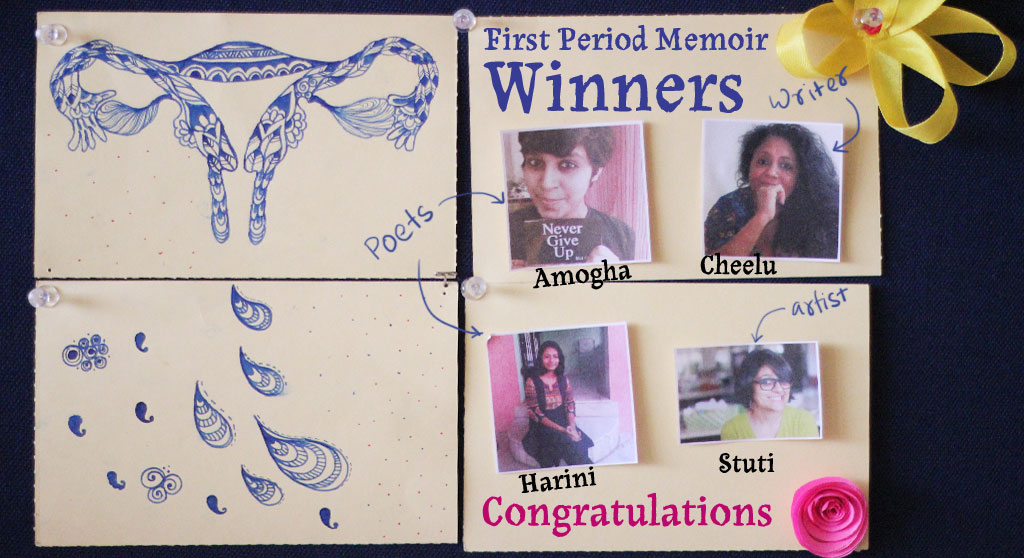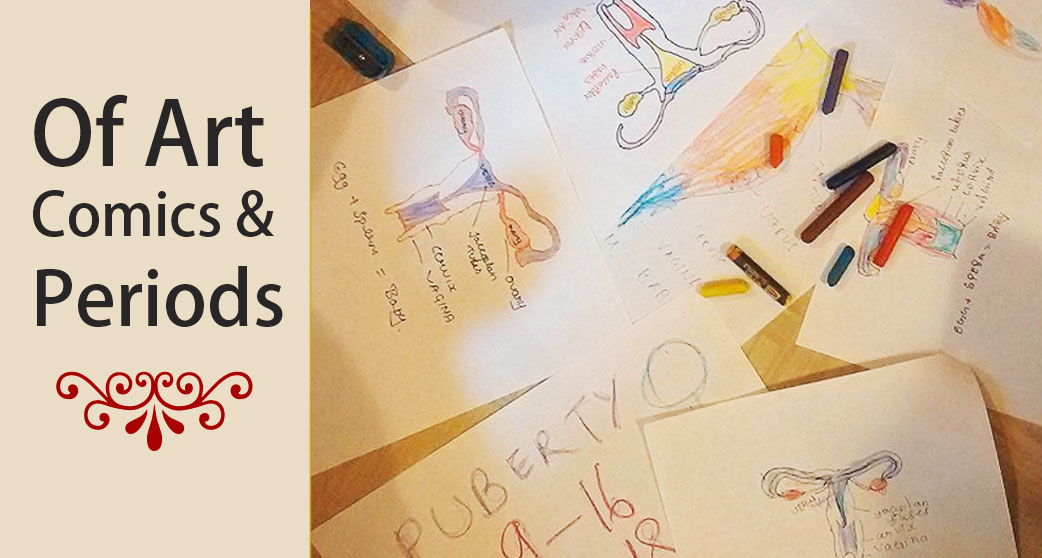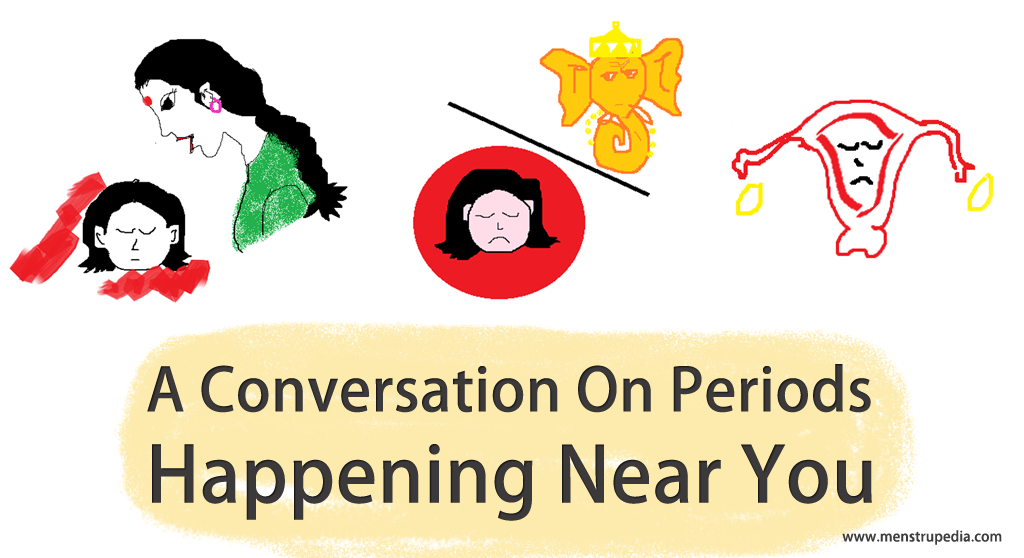1. What inspired you to make this film? Why PCOD?
This documentary was a part of a module in college. Abhipsha (a team member) got detected with PCOD just two weeks before we were supposed to give in our ideas for this documentary and thus this topic was quite fresh in her head. More than that, when she’d been facing these symptoms, she spoke to a lot of girls and it seemed as though a lot of them had similar symptoms, a condition called PCOS. The fact that we chose PCOD as our topic was primarily because we were a group of four girls and also the fact that my mother, Malaika, was diagnosed with PCOD when I was younger and I didn’t really have much knowledge of what was happening to her. This documentary was made in an effort to help myself understand, and make it easier for others to gain access to this information, in an easy-to-understand format.
Also, in the Symbiosis Girls hostels in Viman Nagar, Pune, puppies were adopted to aid in stress relief. The gynecologist had mentioned that this was a lifestyle disorder – the pups in the hostel added weightage to that. Imagine a university feeling the need to incorporate puppies into the ecosystem because the girls were stressed out and faced health issues.
2. What do you want to convey to your audience with this film?
With this film, we have explored personal stories of women afflicted with this disorder, some who’ve had it for up to 14 years. We wanted to ensure that everyone understood that this was not just ‘PMS’ and something to be dismissed; it’s a legitimate lifestyle disorder that affects almost 1 in 5 women and that’s a huge part of our population! Women suffering from it might not even know what is happening to them while men in our culture tend to run away from all things menstruation – related.
3. What was the reaction of the audience? / how has it been received so far? Are there any impact stories that you would like to share with us?
We didn’t produce this documentary for a public forum. Our initial audiences were our own classmates and teachers who in fact encouraged us to share the video on a larger platform.
They were extremely supportive and gave us the confidence to approach larger platforms like yours to get this out to the public. The people we have interviewed are our own classmates and friends and it really put things into perspective when we learned the stories of the people around us. The fact that it was so easy to find girls suffering from PCOD amongst our own batchmates is in itself very telling.
When I sent the link to my dear ones to have a look, one of my friends rang me up late in the night just to thank me for making this documentary because her cousin had all the symptoms mentioned in the film and she was never diagnosed with PCOS. Later, she got the tests done and the results came out positive.
I was so overwhelmed with the fact that this small documentary really helped someone take precautions against this syndrome.
4. What were the initial challenges while getting women to talk about a taboo topic like periods, leave alone PCOD? What did you do to overcome those and get those women to open up to you?
Initially, it was quite difficult to get people to talk about it. Even if they agreed, the fact that it was being recorded made them conscious about what they said. After talking to almost 7 to 10 girls, only 4 of them agreed to speak on camera and share what PCOS was for them and how it affected them mentally and physically, which is something everyone has to understand in our society. Unless society accepts that periods are not a taboo, people will definitely hesitate to talk about it. But as students of Media themselves, it was easier for them to speak out about this as compared to approaching random strangers who may not have been as willing.
5. What’s next for you and your team with regard to this crucial topic and film?
Well, we 4 were classmates with a background in journalism and now we are in different cities and countries, which makes it difficult for us to meet again, but we just wish to share this documentary with as many people as we can and to create awareness and to keep writing and making films about such issues, no matter where we are.
Work Profile:
 Malaika Sujeet: A Journalism graduate from the Symbiosis Centre of Media and Communication with a penchant for books, painting and the written word. She has interned at Penguin Random House publishers, Teach For India as well as Femina’s Middle East Magazine.
Malaika Sujeet: A Journalism graduate from the Symbiosis Centre of Media and Communication with a penchant for books, painting and the written word. She has interned at Penguin Random House publishers, Teach For India as well as Femina’s Middle East Magazine.
 Gunjan Lahoti: A journalism graduate from the Symbiosis Centre of Media and Communication, she has terned in a TV production company – Sphere Origins, Samarthanam Trust for the Disabled (USA) and is currently working at Saurabh Dua Photography, Delhi.
Gunjan Lahoti: A journalism graduate from the Symbiosis Centre of Media and Communication, she has terned in a TV production company – Sphere Origins, Samarthanam Trust for the Disabled (USA) and is currently working at Saurabh Dua Photography, Delhi.

Nikhita Gowra: A journalism graduate from the Symbiosis Centre for Media and Communicataion and has interned at The News Minute and The Hans India Daily.

Abhipsha Mahapatro: A journalism graduate from Symbiosis Centre for Media and Communication. She’s a national-level water polo player and enjoys dancing and reading. She has interned at the SECMOL School, Ladakh.
Interviewed by: Palashi Vaghela







